Stop Fertilizing
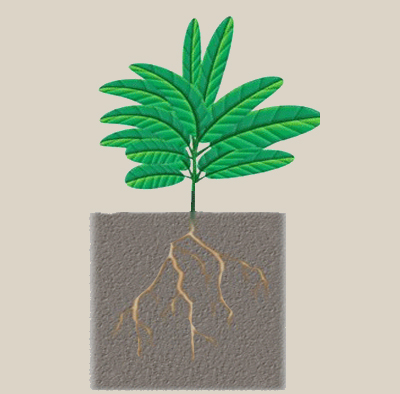
Chemical fertilizers create fast leaf growth, but can leave roots undeveloped.
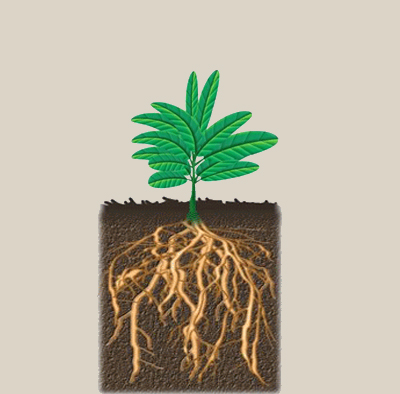
Organic fertilizers and humus stimulate root growth and create more resilient plants.
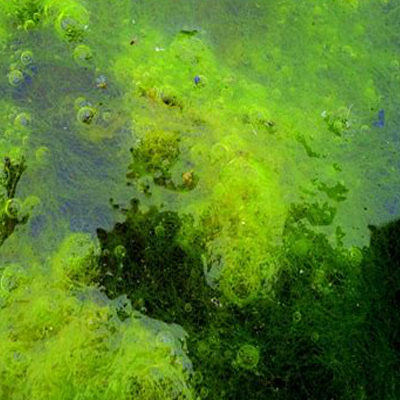
Fertilizer runoff has created serious ecological problems in many countries.
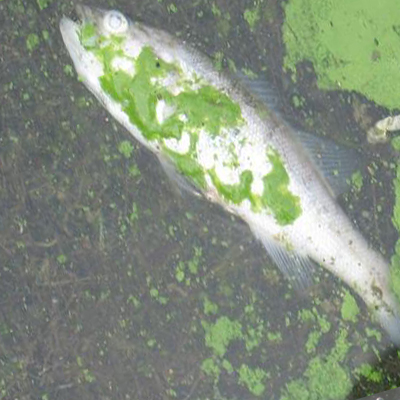
Algal bloom produces toxins and can lead to mass extinction of aquatic animals.
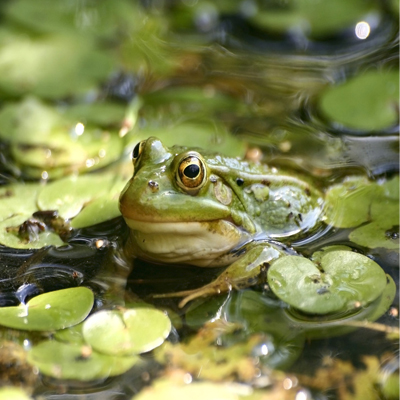
Clean water with healthy amphibians has become very scarce.
If you have native plants in your yard you generally don’t need fertilizer or amendments. Regretfully, our turf grasses are not native, and sometimes they require extra nutrients. The same is true for our vegetable gardens, where we deplete nutrients when we harvest our produce. However, there is no reason — ever — to use chemical fertilizers. Chemical fertilizers cause environmental damage during their production process and when they are used in our yards.
Feeding plants with extra chemical fertilizer will make them put out great foliage and flowers and increases fruit production for a short time but do little to improve root growth.
Chemical fertilizers are usually a mix of nitrogen, potassium and phosphorus. Runoff of these chemicals during wet weather causes great harm to our streams and ponds. Nitrogen and phosphorus create excessive algal bloom in waterways, which is a major environmental problem. Known as red tides, blue-green algae or cyanobacteria, these algal blooms have severe impacts on human health, aquatic ecosystems and the economy. Phosphorus application is banned or restricted in at least 11 states. In NYS, phosphorus may not be applied between December 1 – April 1.
Grass clippings and leaves can be mulched on the lawn for nutrients, and compost can be used as applications for both lawn and vegetable gardens. Adding compost is somewhat more cumbersome to apply than the light and dry chemical fertilizer, but it is by far the best solution for the long term. Compost doesn’t just nurture your plants, it also helps retain moisture, creates better soil structure; it feeds the microorganisms in the soil, and helps store carbon.
